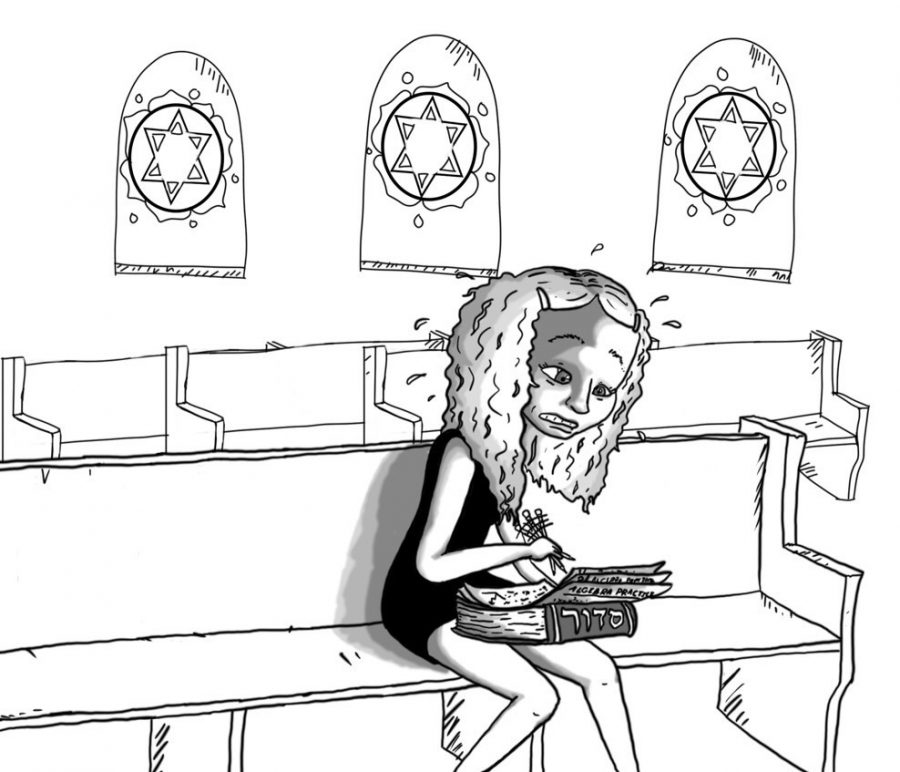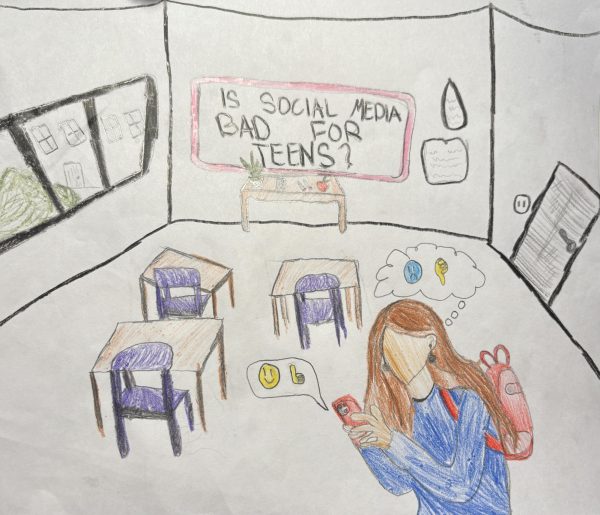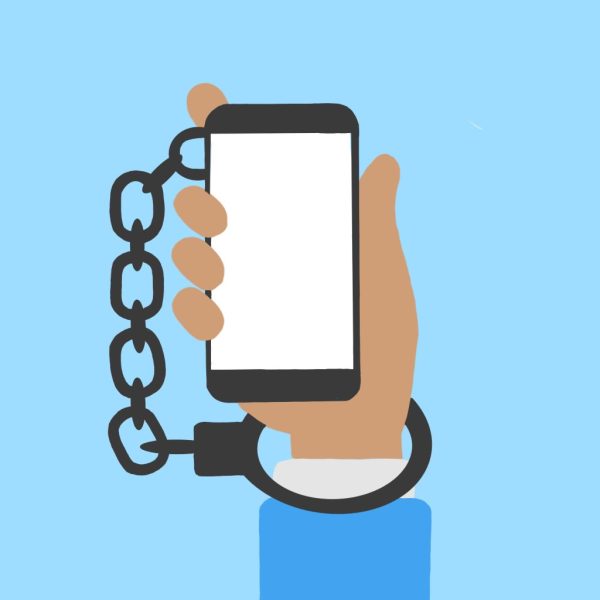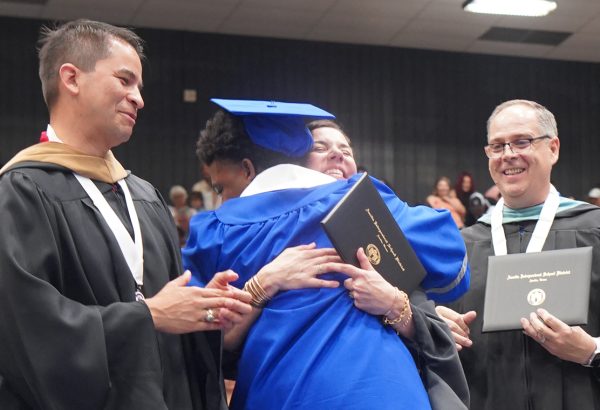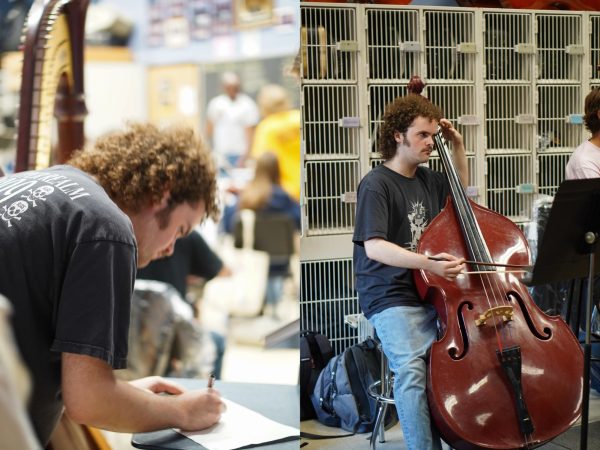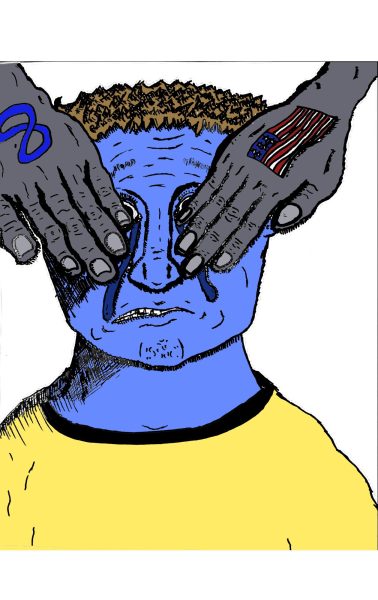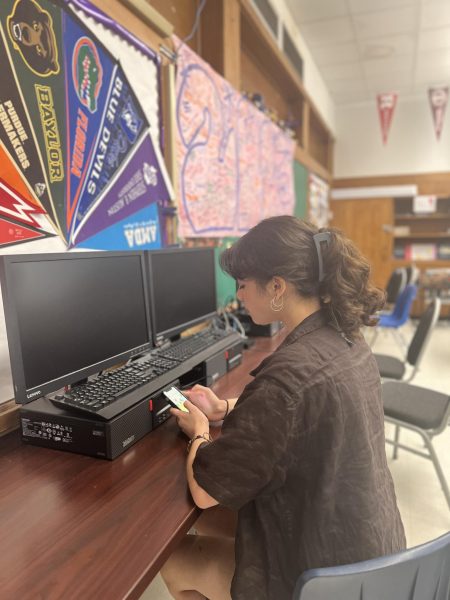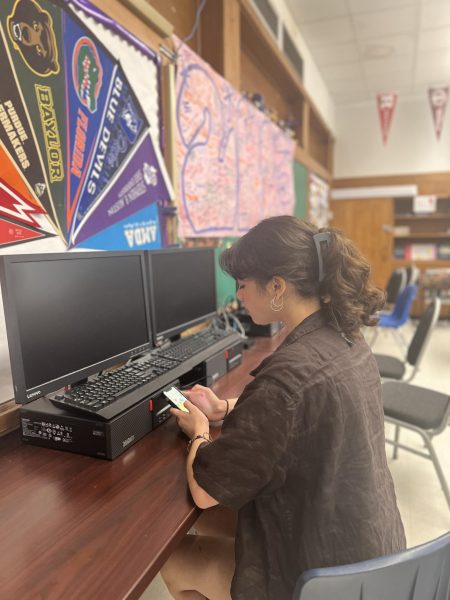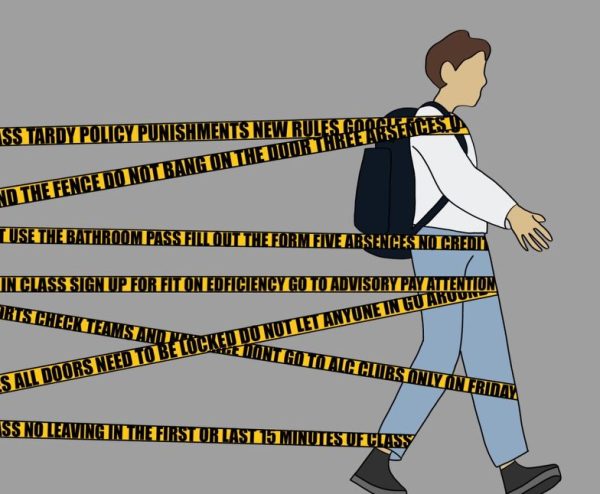It’s High time to respect Jewish Holidays
For too long, school and classroom calendars have ignored Rosh Hashanah, Yom Kippur. Let’s get it right in 2021.
Kai Kirkham Macias and Sophie Kessler
Administrators and teachers should make sure that Jewish students should not be forced to choose between their grades and their faith.
September 4, 2021
Given the small Jewish population at McCallum and AISD as a whole, it’s safe to say Jewish students aren’t expecting their own Christmas break. But numbers alone shouldn’t determine who does and does not have their holidays accounted for and respected.
It’s time to move past just awareness of the High Holidays and move towards actually allyship.
Presenting yourself as an ally to Jewish communities means little if it isn’t coupled with concrete action. While ideally, AISD would turn the Jewish High Holidays into official school holidays, we must be realistic. Without districtwide action, this year, it’s up to administrators and teachers to learn the dates of the Jewish High Holidays and intentionally not schedule any tests or major assignments on those dates.
When a teacher schedules an exam or major assignment on a Jewish holiday, Jewish students are left with two options: either come into school or stay at home. Both options are harmful. If a student feels obligated to come to school, they may miss services and time with family, compromising their faith. If they come in during Yom Kippur, it is likely that they will be fasting, which may affect how they perform on tests or major assignments. On the other hand, if a Jewish student chooses to stay at home, they may be jeopardizing their grades. When they miss an exam or major assignment, chances are the student will be expected to make it up before school or during lunch, possibly in noisy classrooms without the full-time allotted. Jewish students should not be forced to choose between their grades and their faith.
By being aware of the dates of the High Holidays and purposefully not scheduling exams or major assignments, teachers at McCallum have the chance to become true allies to a Jewish community that too often feels isolated.
Scheduling days with lighter workloads isn’t a foreign concept to teachers. Often, during double B-days, teachers will break up one period’s worth of work so that one class doesn’t get ahead of the other. The notion that teachers cannot sacrifice a day’s worth of learning to respect a Jewish student’s faith is unfounded; it is done all the time in other, unrelated circumstances.
It is one thing to be aware of the High Holidays. It is another to actively respect them. Luckily, there seems to be growing awareness at McCallum surrounding this year’s High Holidays, and it’s unlikely we will face any major controversies like this fall when University of Wisconsin Madison accidently scheduled their first day of school on Rosh Hashanah. However, students have already reported teachers continuing to schedule tests and major assignments on Rosh Hashanah and Yom Kippur, despite knowledge of the holidays. Jewish students do not want to be told “Happy Rosh Hashanah! Here’s your test.” Indifference is just as, if not more, harmful than ignorance.
Rosh Hashanah celebrities the Jewish new year and Yom Kippur is a period of atonement. In the spirit of these holidays, let’s strive for growth in our allyship with Jewish students. Without district wide action unlikely, it will be up to administrators and teachers to be aware of the dates of the High Holidays and purposefully not schedule exams or major assignments on those dates. By doing so, teachers at McCallum have the chance to become true allies to a Jewish community that too often feels isolated.
Rosh Hashanah starts on Monday evening and goes until Wednesday night. Yom Kippur begins at sundown on Wednesday, Sept. 15, and concludes the evening of Thursday, Sept. 16.



